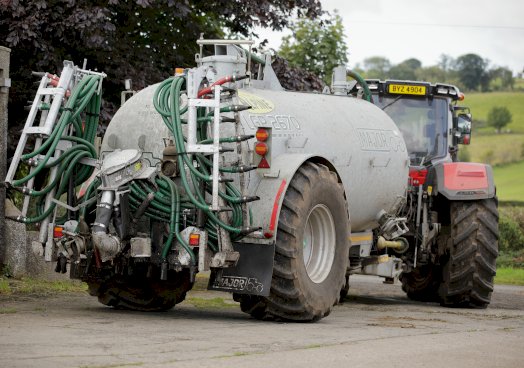
By UFU parliamentary officer Alexander Kinnear
The UK government often talk about improving relations with Europe, however, reality suggests it’s a mixed bag when dealing with current agriculture related issues within the Windsor Framework.
Veterinary medicines
The government’s paper, Protecting Animal Health: The Government’s Approach to Veterinary Medicines in Northern Ireland, outlines two main schemes effective from 1 January 2026, with a commitment that supply risks will be tracked through 2025 and on-going engagement with industry.
Veterinary medicines internal market scheme (VMIMS)
- Provides vets in Northern Ireland access to veterinary medicines not authorised or available locally.
- Vets can use alternatives if no suitable NI-authorised, EU-authorised, or human/extemporaneous medicines are available.
- Removes the need for a ‘special import certificate’ per animal when sourcing from Great Britain.
- Vets can use GB products under this scheme without additional certification or approval.
- Vets can hold a limited supply of medicines in advance if they anticipate clinical need.
- Some products like vaccines, are excluded from the scheme.
- The scheme will be reassessed one year after implementation.
- Vets decide what’s appropriate, with safeguards to prevent misuse and ensure timely treatment.
Veterinary Medicines Health Situation Scheme
- The Veterinary Medicines Health Situation Scheme will allow emergency use of alternative veterinary medicines in Northern Ireland.
- It applies only in genuine animal or public health situations where critical products are unavailable.
- The Veterinary Medicines Directorate (VMD) will identify and approve suitable alternatives on a case-by-case basis.
- Products authorised under the scheme can be used without extra red tape, but only while the health risk persists.
The UFU has welcomed recent moves to secure veterinary medicine supplies in Northern Ireland including botulism vaccine, but concern remains. While new schemes offer some relief, major concerns remain over discontinued products, lack of clear data and long-term certainty. The UFU along with the wider animal health industry continue to call for a formal UK–EU veterinary SPS agreement which includes veterinary medicines. This is essential to protect animal health, support farmers, avoid future supply shocks whilst being able to trade within the EU single market.
Used agricultural machinery
The UFU have previously condemned actions by the UK and EU over broken promises and an outrageous notice period whenever a decision was taken to implement full SPS checks on 23 June 2025. The UK Government had promised to extend the principles of the Plant Health Exports Audited Trader Scheme (PHEATS) to include used agricultural and forestry machinery which was welcomed by many in the industry as a necessary step to ease the burden on GB-NI trade. For dealers and farmers looking to sell machinery into Northern Ireland, and potentially onward into the EU, this scheme would offer much-needed flexibility by allowing self-inspection and streamlined certification through APHA. However, despite this commitment, the promised changes have yet to materialise.
As it stands, businesses are still facing the same costly and time-consuming processes, with no clear timeline for when or even if the new arrangements will come into force. This delay reinforces a broader frustration across the sector that while workable solutions are often identified in principle, delivery remains slow, inconsistent, and bogged down in bureaucracy.
Sanitary & phytosanitary/veterinary agreement
At the May summit, the UK and EU signaled a shift toward closer regulatory cooperation by announcing plans for a shared Sanitary and Phytosanitary (SPS) framework. The proposed agreement would see the UK align aspects of its food, animal and plant health standards with those of the EU. This would eventually result in easing trade frictions and reducing the burden of checks on goods crossing GB-EU and GB-NI. However, no timescale has been provided, with some experts predicting possibly two years before full implementation.
The UK government still adopt the position the Windsor Framework will have to implemented ‘fully and faithfully’ and the European Commission regularly state that ‘full compliance’ is essential with all previous agreements, both positions result in some pain for NI businesses and consumers no matter how strongly we make our case




